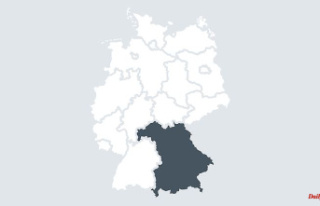Schwerin (dpa/mv) - In Mecklenburg-Western Pomerania, workers in the middle income groups in particular have benefited from the wage increases over the past four years. As reported by the Statistical Office of Mecklenburg-Western Pomerania on Tuesday in Schwerin, gross income in this area increased by 17.9 percent to EUR 16.25 per hour between 2018 and mid-2022. For employees in the low-wage sector, the hourly wage increased by 15 percent to 10.57 euros during this period.
A similar percentage increase was recorded by employees in the upper income bracket. However, since these were already earning well, the absolute plus of 3.71 to 28.41 euros was almost three times as high as that of low-income earners. In the lower tenth of the income pyramid, the increase in the statutory minimum wage had the greatest impact. This was raised between April 2018 and April 2022 from EUR 8.84 to EUR 9.82 per hour.
According to the statistics office, around 152,000 dependent employees worked in Mecklenburg-Western Pomerania in April 2022 for less than 12.50 euros gross per hour. The proportion of employees in the so-called low-wage sector was 24 percent. Four years earlier, according to calculations by the office, it was still 30 percent. In 2018, the low-wage threshold was 11.05 euros per hour.
The statutory minimum wage has been €12.00 per hour since October 1, 2022. According to estimates by the Statistical Office, the increase in the minimum wage has had a greater overall impact on earnings in eastern Germany than in western Germany, where the collective bargaining agreement and thus the wage level are still significantly higher than in the east. According to surveys, employees in Mecklenburg-Western Pomerania earn around 15 percent less than their colleagues in neighboring Schleswig-Holstein.
The state parliament in Schwerin will also deal with wage developments in Mecklenburg-Western Pomerania on Thursday. The coalition of the SPD and the left wants to use changes in the award of public contracts and different subsidy rates for investments to create incentives for more adherence to collective agreements in the economy.
In April, random samples were taken in 58,000 companies across Germany to determine earnings and working hours for the earnings surveys of the statistical offices. The results were compared with the last survey carried out in April 2018.












